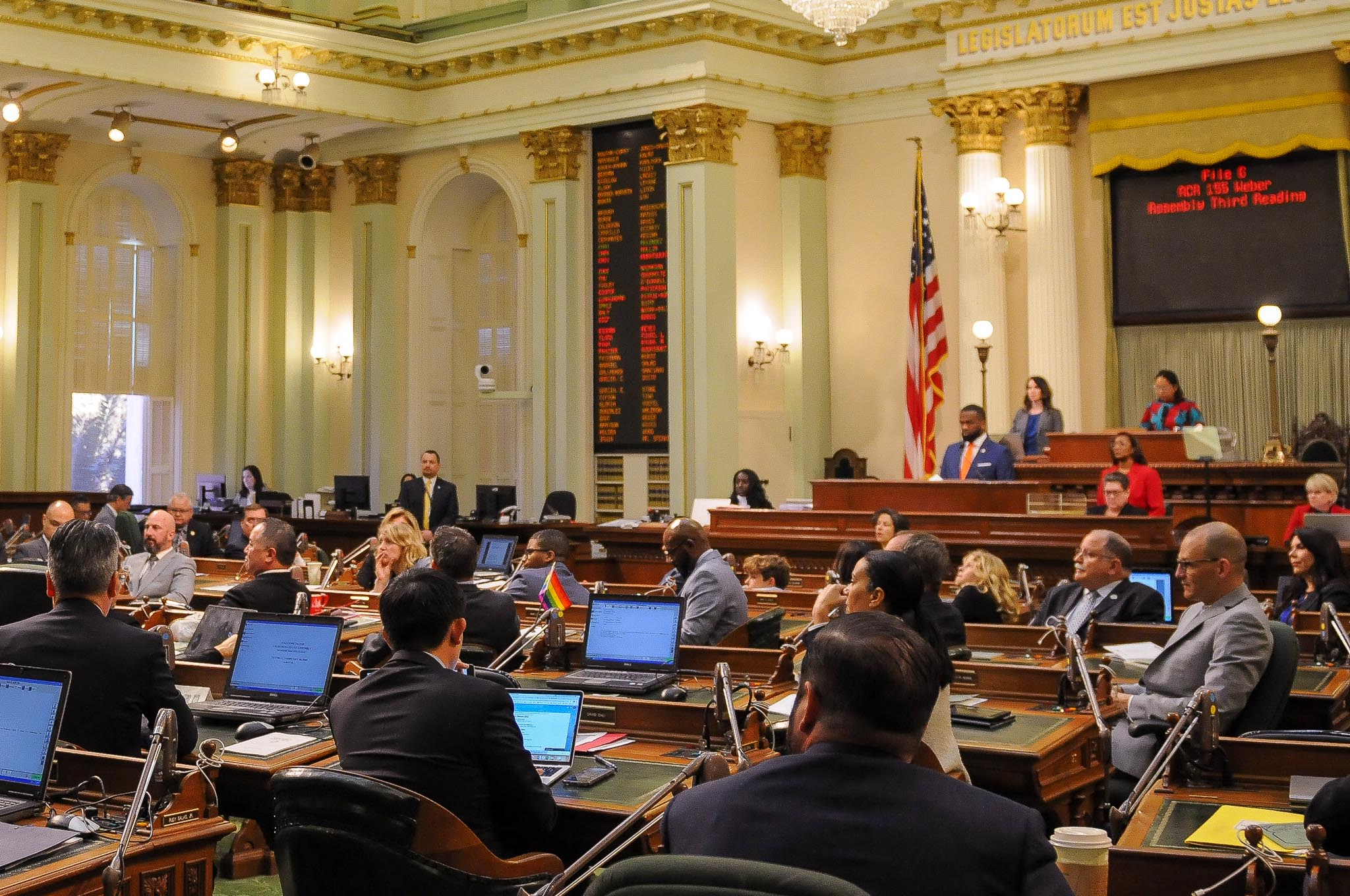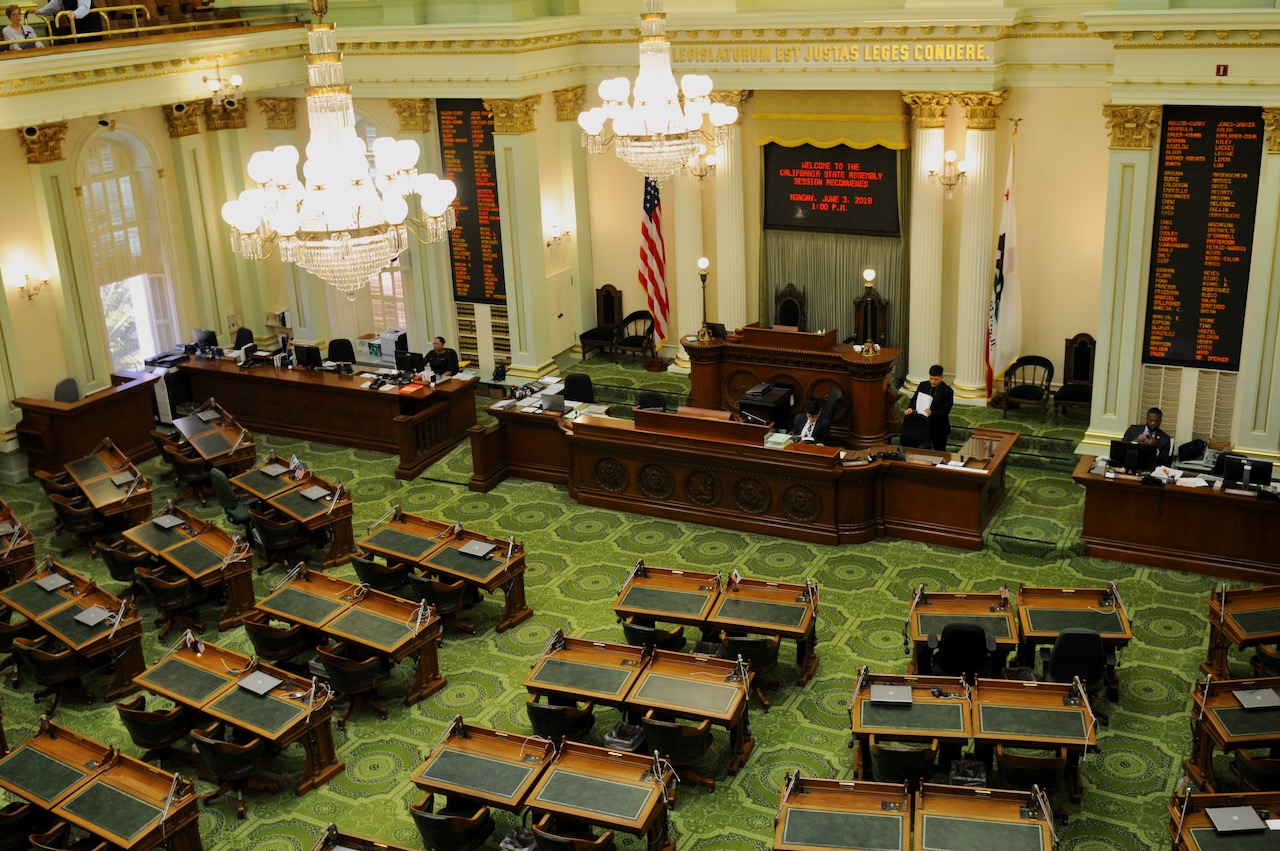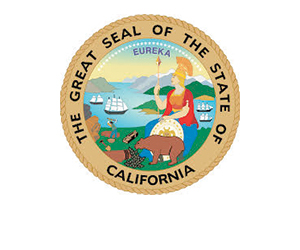
California State Capitol. (Photo: Kevin Sanders for California Globe)
Some General Rules on Digest Keys
There are other vote thresholds, including 2/3, ¾, 55%, and even 70%, for a limited number of measures
By Chris Micheli, October 19, 2023 4:38 pm
Have you ever wondered how the Office of Legislative Counsel (OLC) determines how to mark the four Digest Keys found at the bottom of the Legislative Counsel’s Digest? If so, then read on as I have tried to provide some straightforward guidance on understanding the four keys and how OLC makes their determinations.
The following are the four Legislative Counsel’s Digest Keys with some general guidance:
Vote Key
What vote requirement is imposed on this bill? In about 95% of all bills, a simple majority vote (41 votes in the Assembly; 21 votes in the Senate) is required. In the remaining bills, there are a number of other, higher votes required for passage of a bill. The most common higher vote threshold is 2/3 and the most common exception to the majority vote requirement is for an urgency statute because the state Constitution requires a 2/3 vote to adopt an urgency statute, as well as tax increases.
There are other vote thresholds, including 2/3, ¾, 55%, and even 70%, for a limited number of measures.
The Vote Key must be marked 2/3 for some types of appropriations bills, which would also require the Appropriation Key to be marked Yes.
For a bill that would result in a tax increase, the Vote Key must be market 2/3 and the Fiscal Committee Key must be marked Yes.
Appropriation Key
Does the bill make an appropriation – yes or no? This is simple to determine. Does the bill contain an appropriation of money from the General Fund or a special fund? If so, then the Appropriation Key must be marked Yes.
If an appropriation is being made from the General Fund, the general rule is that the Vote Key will be marked 2/3, except if it is a state budget-related bill. If an appropriation is made from a special fund, the Vote Key will be marked majority.
If the bill makes an appropriation, the Fiscal Committee Key must also be marked Yes.
Fiscal Committee Key
In order to determine whether a bill is “keyed fiscal,” the OLC is required to utilize the four tests under Joint Rule 10.5. Based upon the language of this Joint Rule, there are only four instances in which a bill is keyed “fiscal” and possible fiscal impact on the private sector is not one of them.
Under Joint Rule 10.5, the first is a bill that appropriates money, which is easy to ascertain because the language of the bill actually appropriates a specified sum of money. The second is a bill that results in a “substantial expenditure of state money.”
The third is a bill that results in a “substantial increase or loss of revenue to the state.” This type of bill is relatively easy to determine as well, such as a tax bill that creates a new tax credit or exemption (i.e., it results in loss of revenue) or a bill that repeals a tax credit or exemption (i.e., it results in an increase of revenue).
The fourth is a bill that results in a reduction of expenditures of state money relating to a state agency program or function. As a result, the third Digest Key specifies either “yes” the bill should be re-referred to the fiscal committee or “no” it should not be re-referred.
If a bill makes an appropriation, then the Fiscal Committee Key must be marked Yes.
If a bill contains a state-mandated local program, then the Fiscal Committee Key must be marked Yes.
Local Program Key
This is short for state-mandated local program. Does the bill impose a state-mandated local program on a local government or school district? If so, then the Local Program Key must be marked Yes.
The California Constitution requires the state to reimburse local agencies and school districts for certain costs mandated by the state. Statutory provisions establish procedures for making that reimbursement. Ultimately, the Commission on State Mandates determines whether the bill contains costs mandated by the state regardless of how the Digest Key is marked.
If the bill is determined to impose a local program, then the Fiscal Committee Key must be marked Yes.
- Costs of Partition in California - February 3, 2026
- Rights in Eminent Domain Authority - February 2, 2026
- Unclaimed Property Law General Provisions - February 2, 2026




